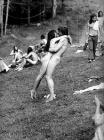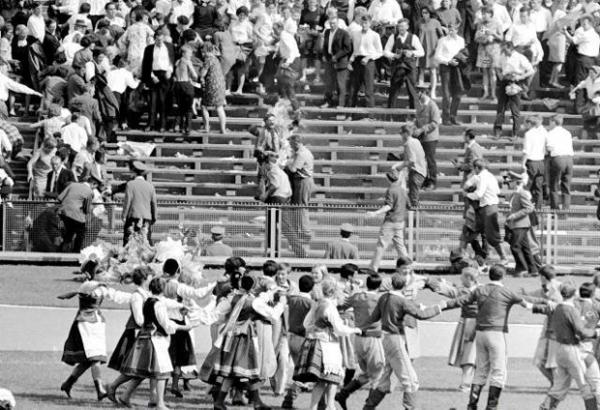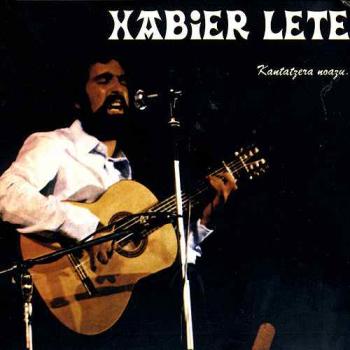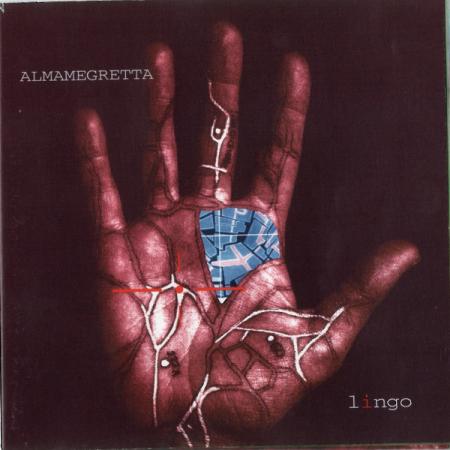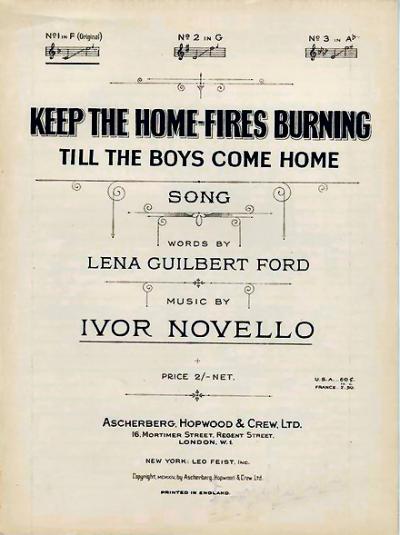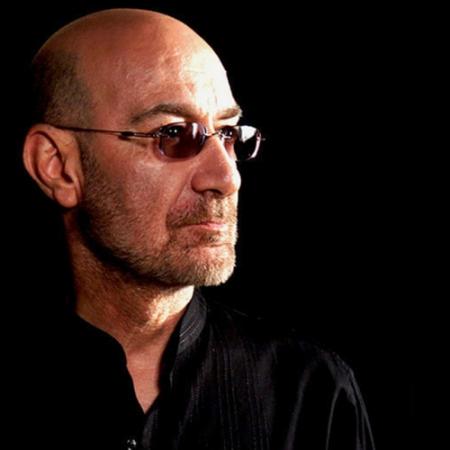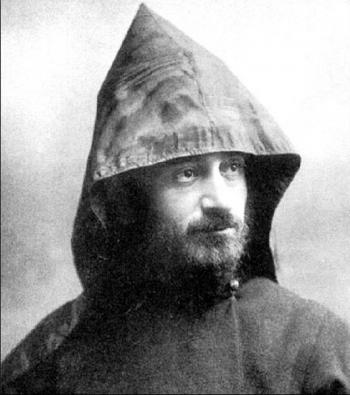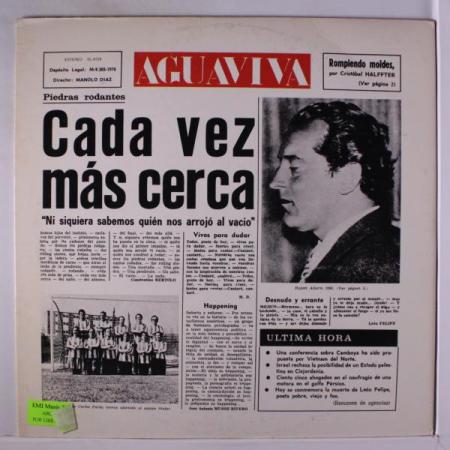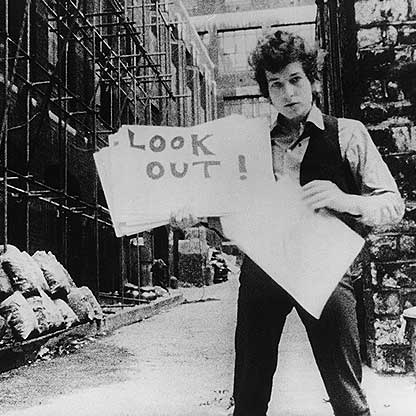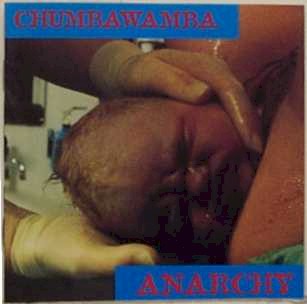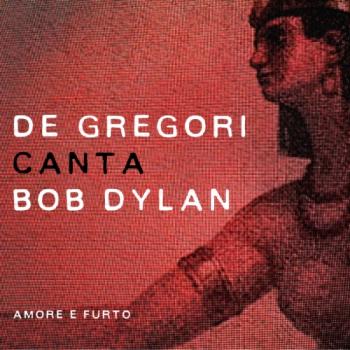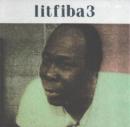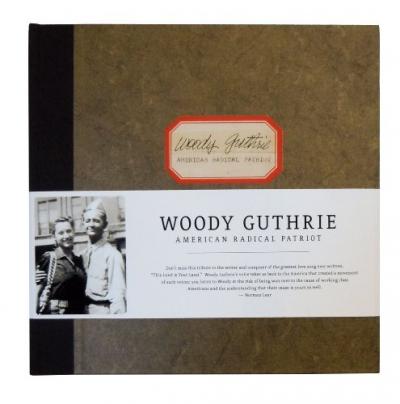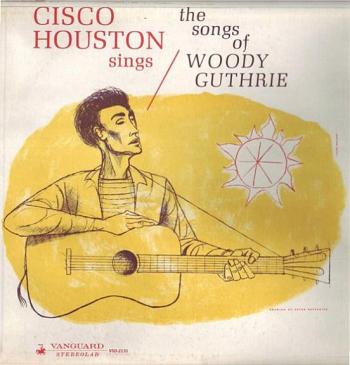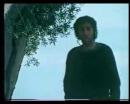Trentacinque

I'Nardella deve aver preso il 35 anche lui. In merito all'episodio di violenza sessuale da parte di due carabinieri a Firenze denunciato da due studentesse americane il sindaco ha dichiarato: “E’ importante che gli studenti americani imparino, anche con l’aiuto delle università e delle nostre istituzioni, che Firenze non è la città dello sballo”. Più o meno siamo al livello di "E se si mèttan quelle minigonne lì, poi pe' forza le violentano!" Nardella, Nardella ma che t'hanno imparato a scuola?
2017/9/10 - 01:05
Le roi Renaud [La mort du roi Renaud; Quand Renaud de guerre revint]
Anonymous
![Le roi Renaud [La mort du roi Renaud; Quand Renaud de guerre revint]](img/upl/jacek-kowalski.jpg)
È vero, non mi sono impegnato più a preparare una traduzione polacca di questo celeberrimo canto, ma dopo quasi due anni ho incontrato una persona che lo ha già fatto, anzi, l'ha fatto in una maniera eccelsa e la esegue pure accompagnandosi con una specie di citola. Un grazie immenso va al autore per il fatto in se e per la gentile fornitura del testo.
KRÓL RENO
(Continues)
(Continues)
Contributed by Krzysiek Wrona 2017/9/9 - 23:36
Le Voyage en Russie
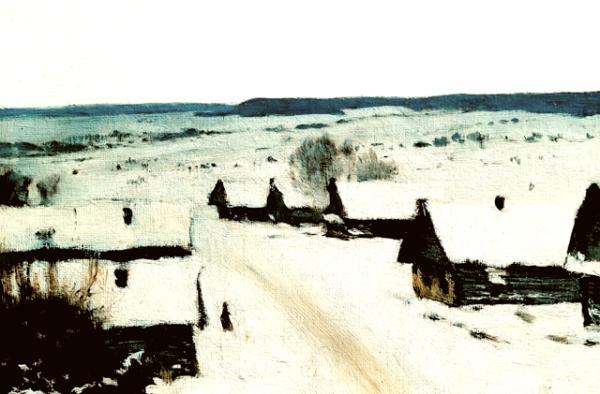
Le Voyage en Russie
Chanson française – Le Voyage en Russie – Marco Valdo M.I. – 2017
Canzone léviane tirée de « Il futuro ha un cuore antico » de Carlo Levi.
Les voyages ont toujours titillé l’imagination, la curiosité; l’ailleurs, l’autre, le différent, l’étranger, l’étrange m’ont toujours fasciné, dit Marco Valdo M.I.
Moi aussi, dit l’âne, j’ai toujours aimé aller ailleurs, aller voir plus loin, rencontrer d’autres paysages, d’autres ânes, d’autres gens, d’autres herbes. J’ai toujours aimé voir le soleil se lever de l’autre côté de la montagne. J’aime aller dans les villages, j’aime voir les pays inconnus et marcher sur des chemins ancestraux ou sur les routes qu’ont chantés les aèdes.
Fort bien, dit Marco Valdo M.I, et depuis les temps reculés où tu es en route, tu as eu le temps d’en voir du pays ; mais, dis-moi, Lucien l’âne mon ami, que sais-tu de la Russie et des grands espaces... (Continues)
Chanson française – Le Voyage en Russie – Marco Valdo M.I. – 2017
Canzone léviane tirée de « Il futuro ha un cuore antico » de Carlo Levi.
Les voyages ont toujours titillé l’imagination, la curiosité; l’ailleurs, l’autre, le différent, l’étranger, l’étrange m’ont toujours fasciné, dit Marco Valdo M.I.
Moi aussi, dit l’âne, j’ai toujours aimé aller ailleurs, aller voir plus loin, rencontrer d’autres paysages, d’autres ânes, d’autres gens, d’autres herbes. J’ai toujours aimé voir le soleil se lever de l’autre côté de la montagne. J’aime aller dans les villages, j’aime voir les pays inconnus et marcher sur des chemins ancestraux ou sur les routes qu’ont chantés les aèdes.
Fort bien, dit Marco Valdo M.I, et depuis les temps reculés où tu es en route, tu as eu le temps d’en voir du pays ; mais, dis-moi, Lucien l’âne mon ami, que sais-tu de la Russie et des grands espaces... (Continues)
On m’avait dit surtout
(Continues)
(Continues)
Contributed by Marco Valdo M.I. 2017/9/9 - 23:18
No queremos volver atrás
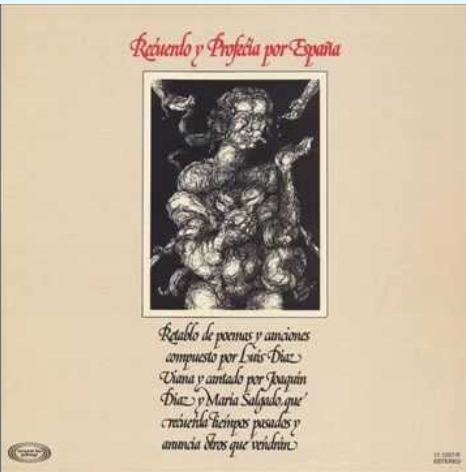
[1977]
Versi di Luis Díaz Viana (1951-), antropologo, scrittore e poeta spagnolo
Musica di Joaquín Díaz González (1947-), musicista e ricercatore folklorico di Zamora
Canta Maria Salgado, cantante anche lei originaria della provincia di Zamora, nella comunità autonoma di Castilla y León
Nell'album di Joaquín Díaz e Maria Salgado intitolato “Recuerdo y profecía por España”
Versi di Luis Díaz Viana (1951-), antropologo, scrittore e poeta spagnolo
Musica di Joaquín Díaz González (1947-), musicista e ricercatore folklorico di Zamora
Canta Maria Salgado, cantante anche lei originaria della provincia di Zamora, nella comunità autonoma di Castilla y León
Nell'album di Joaquín Díaz e Maria Salgado intitolato “Recuerdo y profecía por España”
Hemos roto las rejas
(Continues)
(Continues)
Contributed by Bernart Bartleby 2017/9/9 - 21:37
Song Itineraries:
The Spanish Civil War 1936-1939 and Franco's Dictatorship
Mercy on Me
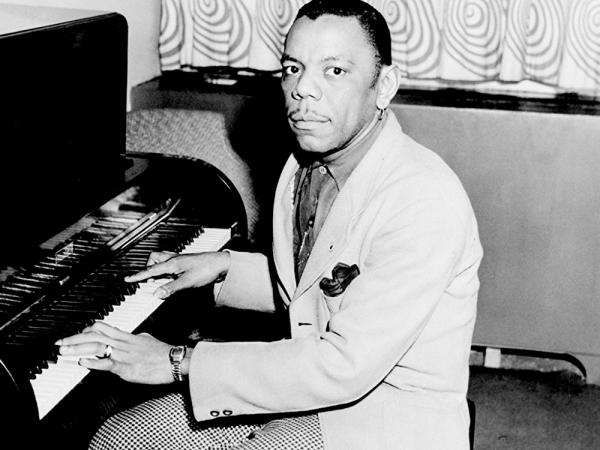
Chanson de Champion Jack Dupree de 1962. Un texte simple et prenant à propos du racisme ordinaire, chanté à la manière d'un gospel.
Mercy on me
(Continues)
(Continues)
Contributed by D Laloë 2017/9/9 - 18:37
Song Itineraries:
Racism and Slavery in the USA
Canción para Santiago Maldonado

Emilio y Bruno Jones Huala son familiares del Lonko [líder] mapuche Facundo Jones Huala, actualmente detenido. Se difundió en las redes un video donde ambos cantan una canción dedicada a Santiago Maldonado, joven anarquista desaparecido desde hace un mes durante durante un violento operativo contra la comunidad mapuche de Pu Lof en el departamento de Cushamen, que protesta a diario por las tierras que les robó el magnate italiano Benetton
La familia Jones Huala se ha hecho conocida por la detención de Facundo que ya lleva casi tres años, a la espera de un polémico juicio de extradición a Chile. Pero también el resto de la familia ha sufrido la represión. Un ejemplo de esto es el disparo que impacto sobre la mandíbula de Emilio Jones Huala, hermano del Lonko, quien recibió un balazo durante un operativo el 12 de enero cuando la Gendarmería “llego a los tiros al Lof”. Emilio fue detenido el día anterior a la desaparición de Santiago Maldonado junto a Romina, prima del Lonko.
Da la haine.org
No callara mi pueblo
(Continues)
(Continues)
Contributed by adriana 2017/9/9 - 16:28
Donde dijeron digo decid Diego
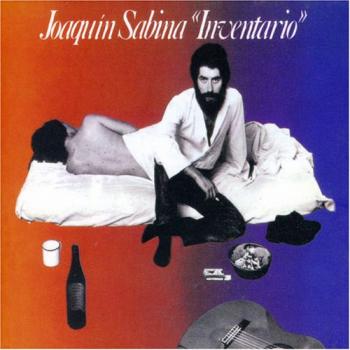
Nos enseñaron a tener paciencia
(Continues)
(Continues)
Contributed by Bernart Bartleby 2017/9/8 - 22:34
Song Itineraries:
The Spanish Civil War 1936-1939 and Franco's Dictatorship
Pasodoble de las majas
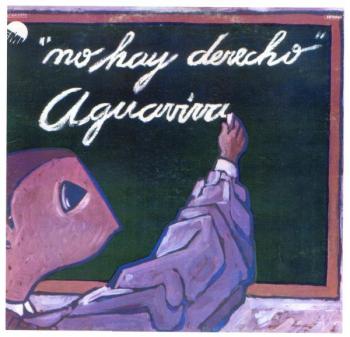
[1977]
Versi di Pedro Cobos (1928-1989), giurista, scrittore e poeta originario di Jumilla, nella comunità autonoma spagnola di Murcia.
Nella raccolta intitolata “La Vida Perdularia”, pubblicata solo nel 1989, dopo la morte dell’autore
Musica di José “Pepe” Nieto, arrangiatore, compositore e produttore degli Aguaviva
Nell'album “No hay derecho” pubblicato nel 1977.
La dedica apposta a questa canzone è a Pepe Infante. Credo si tratti di José Infante Martos (Málaga, 1946), poeta, scrittore e giornalista spagnolo.
Secondo questa recensione, il brano si riferisce all'intolleranza quando non alla persecuzione di Stato verso gli omosessuali, uno dei tanti aspetti aberranti del regime franchista e clericale spagnolo.
Versi di Pedro Cobos (1928-1989), giurista, scrittore e poeta originario di Jumilla, nella comunità autonoma spagnola di Murcia.
Nella raccolta intitolata “La Vida Perdularia”, pubblicata solo nel 1989, dopo la morte dell’autore
Musica di José “Pepe” Nieto, arrangiatore, compositore e produttore degli Aguaviva
Nell'album “No hay derecho” pubblicato nel 1977.
La dedica apposta a questa canzone è a Pepe Infante. Credo si tratti di José Infante Martos (Málaga, 1946), poeta, scrittore e giornalista spagnolo.
Secondo questa recensione, il brano si riferisce all'intolleranza quando non alla persecuzione di Stato verso gli omosessuali, uno dei tanti aspetti aberranti del regime franchista e clericale spagnolo.
¡No hay derecho
(Continues)
(Continues)
Contributed by Bernart Bartleby 2017/9/8 - 22:15
The Torture Never Stops

Ok... ma zappa pur essendo di quel periodo
non ha nulla a che fare con il movimento "Flower power"...
E solo un interprete delle sue visioni musicali...
Come dice zappa!
Parlare di musica è come ballare di architettura !
Ergo !! Puoi ascoltare e goderti la sua musica anche senza
tradurre titoli :D anche se è sempre bello sapere cosa dicono le canzoni!!
non ha nulla a che fare con il movimento "Flower power"...
E solo un interprete delle sue visioni musicali...
Come dice zappa!
Parlare di musica è come ballare di architettura !
Ergo !! Puoi ascoltare e goderti la sua musica anche senza
tradurre titoli :D anche se è sempre bello sapere cosa dicono le canzoni!!
JONAS 2017/9/8 - 19:59
Il mondo va così

Chanson italienne – Il mondo va così – Franco Battiato – 1967
C’est un des premiers 45 tours de Battiato (1967) ; elle est une adaptation d’Et moi, et moi, et moi de Jacques Dutronc. Les auteurs de la version originale sont Jacques Lanzmann (Texte) et Jacques Dutronc (Musique) ; la version italienne est de Herbert Pagani et de V. Buffoli.
Dialogue maïeutique
Ah, Lucien l’âne mon ami, je suis content de te voir, car me voilà bien embêté.
Salut, Marco Valdo M.I. mon ami, moi aussi , je suis heureux de te voir et je serais encore plus heureux de t’aider. Dis-moi ce qui ne va pas et ce qui te désole pareillement.
Ce qui me désole et m’ennuie tant, Lucien l’âne mon ami ? Je vais te le dire à l’instant. C’est cette chanson de Franco Battiato que je viens de traduire. Enfin, ce n’est pas la chanson italienne elle-même qui fait problème, mais ma version française, car je ne peux m’empêcher... (Continues)
C’est un des premiers 45 tours de Battiato (1967) ; elle est une adaptation d’Et moi, et moi, et moi de Jacques Dutronc. Les auteurs de la version originale sont Jacques Lanzmann (Texte) et Jacques Dutronc (Musique) ; la version italienne est de Herbert Pagani et de V. Buffoli.
Dialogue maïeutique
Ah, Lucien l’âne mon ami, je suis content de te voir, car me voilà bien embêté.
Salut, Marco Valdo M.I. mon ami, moi aussi , je suis heureux de te voir et je serais encore plus heureux de t’aider. Dis-moi ce qui ne va pas et ce qui te désole pareillement.
Ce qui me désole et m’ennuie tant, Lucien l’âne mon ami ? Je vais te le dire à l’instant. C’est cette chanson de Franco Battiato que je viens de traduire. Enfin, ce n’est pas la chanson italienne elle-même qui fait problème, mais ma version française, car je ne peux m’empêcher... (Continues)
AINSI VA LE MONDE
(Continues)
(Continues)
Contributed by Marco Valdo M.I. 2017/9/8 - 19:45
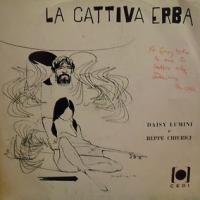
Today, after a two-months work, we completed the insertion of the songs included in a very beautiful and very rare LP by Beppe Chierici and Daisy Lumini "La cattiva erba" (The Weed) published in 1970.
The LP contains 15 songs, translated into Italian from poems and antiwar songs ranging from Archilochus and Laozi to Antoine over more than 2500 years.
Some tracks were already present in the original version. The Italian lyrics were transcribed thanks to Flavio Poltronieri who provided us with a copy of the record, that is now completely available on youtube. We found some of the missing tracks on the web, with the help of B.B. and of Renè Zosso, a Swiss hurdy-gurdy player.
Perchè quei cannoni? (Antoine) - Nenia (dalla guerra dei trent'anni) - Eravamo tre compagni - Compianto popolare - Il soldato morto in terra straniera - Alla guerra chi ci va - Il soldato dormiente (Rimbaud) - La guerra è truccata (Boris Vian) - Contro la guerra e le armi (Lao Tsu) - Lo scudo perduto (Archiloco) - Non avremo mai la pace, fratello? (Oliver De Magny) - Il condannato a morte - Testamento (Lermontov) - Il malcontento del soldato - Torna da in guerra un soldato
The LP contains 15 songs, translated into Italian from poems and antiwar songs ranging from Archilochus and Laozi to Antoine over more than 2500 years.
Some tracks were already present in the original version. The Italian lyrics were transcribed thanks to Flavio Poltronieri who provided us with a copy of the record, that is now completely available on youtube. We found some of the missing tracks on the web, with the help of B.B. and of Renè Zosso, a Swiss hurdy-gurdy player.
Perchè quei cannoni? (Antoine) - Nenia (dalla guerra dei trent'anni) - Eravamo tre compagni - Compianto popolare - Il soldato morto in terra straniera - Alla guerra chi ci va - Il soldato dormiente (Rimbaud) - La guerra è truccata (Boris Vian) - Contro la guerra e le armi (Lao Tsu) - Lo scudo perduto (Archiloco) - Non avremo mai la pace, fratello? (Oliver De Magny) - Il condannato a morte - Testamento (Lermontov) - Il malcontento del soldato - Torna da in guerra un soldato
DonQuijote82 2017/9/8 - 19:44
Castles Burning
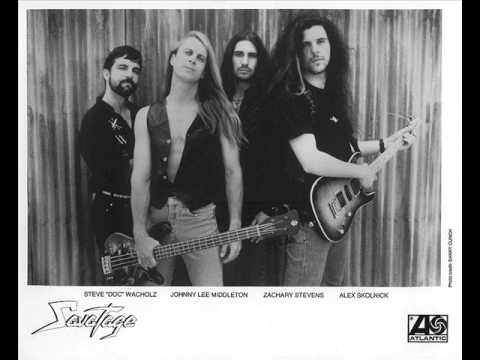
Questa canzone , parte dell'album "Handful of Rain" del 1994 ,è stata dedicata all'omicidio di Falcone (fonte risposta dell'autore, l'italoamericano Jon Oliva, a Metal Shock)
Castles burningIn the dark and bleeding
(Continues)
(Continues)
Contributed by Lucone 2017/9/8 - 12:10
Song Itineraries:
Mafia and Mafias
Los dos filhets del rei
Anonymous
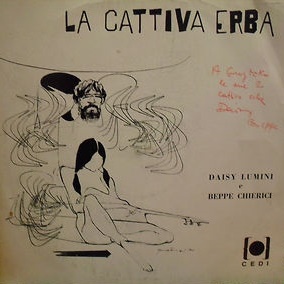
La cattiva erba (1970)
Autori: Anonimo Franc. XVII sec., Beppe Chierici
La Cattiva Erba (Contro la guerra e le armi) è un album del 1970 di Beppe Chierici e Daisy Lumini che raccoglie 15 canzoni in italiano frutto di traduzioni e reinterpretazioni di poesie e canzoni che vanno da Archiloco e Lao Tsu ad Antoine attraverso più di 2500 anni di storia. Credo che il titolo piacesse particolarmente a Beppe Chierici, visto che lo ha riutilizzato recentemente per un album su Brassens.
Il tema della guerra, della sua inutilità, del dolore delle madri o delle mogli che attendono il ritorno è ricorrente, essendo alcuni brani molto antichi, non possiamo però attenderci invettive contro la guerra.
Il disco è purtroppo introvabile, se non fosse stato per Flavio Poltronieri che ce ne ha fornito una copia, con tanto di fruscii del vinile inclusi nei brani, perchè in vinile uscì l'LP nel 1970, non saremmo... (Continues)
Autori: Anonimo Franc. XVII sec., Beppe Chierici
La Cattiva Erba (Contro la guerra e le armi) è un album del 1970 di Beppe Chierici e Daisy Lumini che raccoglie 15 canzoni in italiano frutto di traduzioni e reinterpretazioni di poesie e canzoni che vanno da Archiloco e Lao Tsu ad Antoine attraverso più di 2500 anni di storia. Credo che il titolo piacesse particolarmente a Beppe Chierici, visto che lo ha riutilizzato recentemente per un album su Brassens.
Il tema della guerra, della sua inutilità, del dolore delle madri o delle mogli che attendono il ritorno è ricorrente, essendo alcuni brani molto antichi, non possiamo però attenderci invettive contro la guerra.
Il disco è purtroppo introvabile, se non fosse stato per Flavio Poltronieri che ce ne ha fornito una copia, con tanto di fruscii del vinile inclusi nei brani, perchè in vinile uscì l'LP nel 1970, non saremmo... (Continues)
Alla guerra chi ci va, non ritorna dalla guerra
(Continues)
(Continues)
Contributed by Dq82 2017/9/8 - 10:23
L’Homme en gris
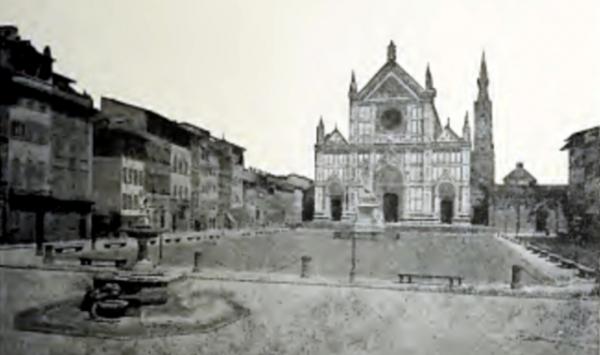
L’Homme en gris
Chanson française – L’Homme en gris – Marco Valdo M.I. – 2017
chanson inspirée de Morto sul selciato – Marco Valdo M.I. – 2005
Pour faire sourdre le caractère éminemment poétique de l’écriture de Carlo Levi, son traducteur Marco Valdo M.I. (c’est-à-dire le soussigné) s’est essayé à moduler sous forme de chansons – chansons, au sens italien de canzone, comme l’entendaient Pétrarque ou Umberto Saba ou Pier Paolo Pasolini, c’est-à-dire de poèmes destinés (éventuellement) à être chantés et en tous cas, de paroles teintées d’une musicalité intérieure, quelques passages des « romans » ou des « écrits » de Carlo Levi. Il en présente le résultat ci-après. Celle-ci (et d’autres canzoni leviane ou comme j’aime les appeler en français canzones lévianes) fut écrite dans les deux langues qui se font écho l’une à l’autre, comme dans un duo de deux sœurs.
Avec les amis de la Fondazione... (Continues)
Chanson française – L’Homme en gris – Marco Valdo M.I. – 2017
chanson inspirée de Morto sul selciato – Marco Valdo M.I. – 2005
Pour faire sourdre le caractère éminemment poétique de l’écriture de Carlo Levi, son traducteur Marco Valdo M.I. (c’est-à-dire le soussigné) s’est essayé à moduler sous forme de chansons – chansons, au sens italien de canzone, comme l’entendaient Pétrarque ou Umberto Saba ou Pier Paolo Pasolini, c’est-à-dire de poèmes destinés (éventuellement) à être chantés et en tous cas, de paroles teintées d’une musicalité intérieure, quelques passages des « romans » ou des « écrits » de Carlo Levi. Il en présente le résultat ci-après. Celle-ci (et d’autres canzoni leviane ou comme j’aime les appeler en français canzones lévianes) fut écrite dans les deux langues qui se font écho l’une à l’autre, comme dans un duo de deux sœurs.
Avec les amis de la Fondazione... (Continues)
Sur la place ensoleillée,
(Continues)
(Continues)
Contributed by Marco Valdo M.I. 2017/9/8 - 10:18
New Immigration Law
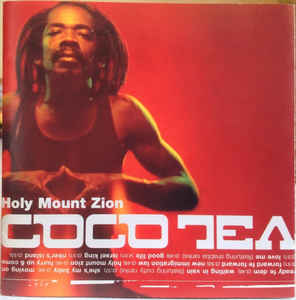
1997
Single: New Immigration Law / Holy Mount Zion
Holy Mount Zion
Single: New Immigration Law / Holy Mount Zion
Holy Mount Zion
America Yeah na Am talking about the law in america The new immigration law Man no hear bout the new immigration law Tabled in congress in America Say what hear me now The new law all yall man nor fit talk
(Continues)
(Continues)
Contributed by Dq82 2017/9/7 - 17:55
Song Itineraries:
The War of Labour: Emigration, Immigration, Exploitation, Slavery
The Maid and the Palmer and the Well Below the Valley
Anonymous
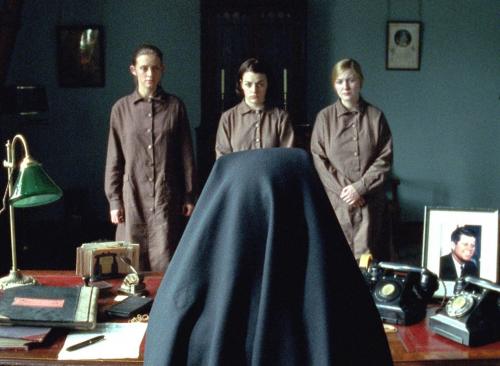
Child #21
a. The Maid and the Palmer
Da / From: Percy Folio Manuscript, XVII secolo / 17th Century (senza titolo / untitled)
Child #21B.: Charles Kirkpatrick Sharpe, 1851, Scots Musical Museum communicated by Walter Scott around 1825
b. The Well Below the Valley
First recorded by / Registrata originariamente da Tom Munnelly, 1965
Cantore / Folksinger: John Reilly (1925-1969)
Incisa da vari artisti e gruppi / Recorded by various artists and bands
Maddalene.
Nel famoso manoscritto del Percy (il Percy Folio probabilmente seicentesco), le ballate che vi sono contenute a volte non hanno un titolo ben preciso. Fu quindi Francis James Child a dare a questa oscura, cupa e controversa ballata il titolo di The Maid and the Palmer (Child #21). Il prof. Bronson, l'importantissimo raccoglitore e studioso delle melodie delle ballate tradizionali britanniche, a proposito di King Orfeo (ballata... (Continues)
a. The Maid and the Palmer
Da / From: Percy Folio Manuscript, XVII secolo / 17th Century (senza titolo / untitled)
Child #21B.: Charles Kirkpatrick Sharpe, 1851, Scots Musical Museum communicated by Walter Scott around 1825
b. The Well Below the Valley
First recorded by / Registrata originariamente da Tom Munnelly, 1965
Cantore / Folksinger: John Reilly (1925-1969)
Incisa da vari artisti e gruppi / Recorded by various artists and bands
Maddalene.
Nel famoso manoscritto del Percy (il Percy Folio probabilmente seicentesco), le ballate che vi sono contenute a volte non hanno un titolo ben preciso. Fu quindi Francis James Child a dare a questa oscura, cupa e controversa ballata il titolo di The Maid and the Palmer (Child #21). Il prof. Bronson, l'importantissimo raccoglitore e studioso delle melodie delle ballate tradizionali britanniche, a proposito di King Orfeo (ballata... (Continues)
THE maid shee went to the well to washe,
(Continues)
(Continues)
Contributed by Riccardo Venturi 2017/9/7 - 12:51
Seré curioso (¿De qué se ríe?)
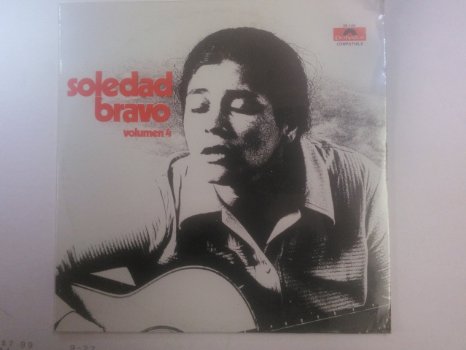
A dire il vero la prima ad interpretare in canzone questa poesia di Benedetti credo sia stata Soledad Bravo nel suo disco "Volumen 4" del 1972
B.B. 2017/9/7 - 11:32
La luz de la libertad

[1977?]
Versi di Pedro Cobos (1928-1989), giurista, scrittore e poeta originario di Jumilla, nella comunità autonoma spagnola di Murcia.
Nella raccolta intitolata “La Vida Perdularia”, pubblicata solo nel 1989, dopo la morte dell’autore
Musica di José “Pepe” Nieto, arrangiatore, compositore e produttore degli Aguaviva
Nel disco degli Aguaviva intitolato “No hay derecho”, 1977.
Poesia dedicata a José Manuel Yanes, tastierista degli Aguaviva e produttore musicale (per esempio delle Vainica Doble)
Non conosco il significato dell’invocazione contenuta nell’ultima strofa. Ignoro chi sia “don Luis Meneo”, mentre il “Peñón de Gibraltar” è la Rocca di Gibilterra…
Versi di Pedro Cobos (1928-1989), giurista, scrittore e poeta originario di Jumilla, nella comunità autonoma spagnola di Murcia.
Nella raccolta intitolata “La Vida Perdularia”, pubblicata solo nel 1989, dopo la morte dell’autore
Musica di José “Pepe” Nieto, arrangiatore, compositore e produttore degli Aguaviva
Nel disco degli Aguaviva intitolato “No hay derecho”, 1977.
Poesia dedicata a José Manuel Yanes, tastierista degli Aguaviva e produttore musicale (per esempio delle Vainica Doble)
Non conosco il significato dell’invocazione contenuta nell’ultima strofa. Ignoro chi sia “don Luis Meneo”, mentre il “Peñón de Gibraltar” è la Rocca di Gibilterra…
La luz de la libertad
(Continues)
(Continues)
Contributed by Bernart Bartleby 2017/9/7 - 09:26
The Last Refugee

La trascrizione degli annunci alla radio che introducono la canzone
Announcers:"And it's also the end of broadcasting for Thursday, the end of broadcasting for 1970"
(Continues)
(Continues)
2017/9/7 - 09:17
La víspera

[1977?]
Versi di Pedro Cobos (1928-1989), giurista, scrittore e poeta originario di Jumilla, nella comunità autonoma spagnola di Murcia.
Nella raccolta intitolata “La Vida Perdularia”, pubblicata solo nel 1989, dopo la morte dell’autore
Musica di José “Pepe” Nieto, arrangiatore, compositore e produttore degli Aguaviva
Nel disco degli Aguaviva intitolato “No hay derecho”, 1977.
Versi di Pedro Cobos (1928-1989), giurista, scrittore e poeta originario di Jumilla, nella comunità autonoma spagnola di Murcia.
Nella raccolta intitolata “La Vida Perdularia”, pubblicata solo nel 1989, dopo la morte dell’autore
Musica di José “Pepe” Nieto, arrangiatore, compositore e produttore degli Aguaviva
Nel disco degli Aguaviva intitolato “No hay derecho”, 1977.
Escrito está en un papel
(Continues)
(Continues)
Contributed by Bernart Bartleby 2017/9/7 - 08:42
Les pays n'existent pas
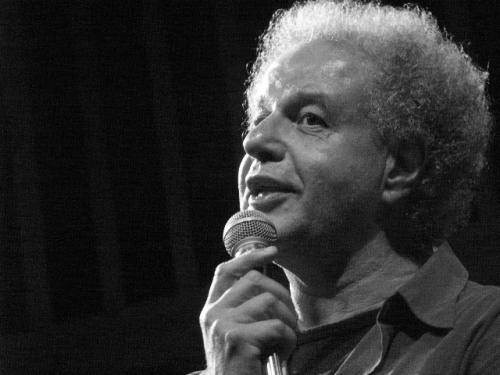
Paroles et musique: Môrice Benin
Album: Peut-Être (1972)
Album: Peut-Être (1972)
"Contre tous les petits nationalismes étatiques ou ceux du quotidien, des petits drapeaux accrochés aux fenêtres, sortis les jours d'anniversaire, qui n'ont d'autres sens que d'affirmer un bellicisme conscient ou inconscient. Réaffirmer sa frontière nationale physique et intellectuelle est le début de la guerre!"
Non, ce pays n'existe pas
(Continues)
(Continues)
Contributed by Flavio Poltronieri 2017/9/7 - 00:01
Hōyla hōyla [Em gedărk to hadōnāi nă to plen]
![Hōyla hōyla [Em gedărk to hadōnāi nă to plen]](img/thumb/c3719_130x140.jpeg?1328533449)
Caro Lorenzo,scusa il grave ritardo nella risposta. Ti posso inviare il testo battuto a macchina che gentilmente mi ha donato Morice in persona,(il corsivo è il suo infatti) però posso solo farlo con lo scanner, non ho il tempo di trascriverlo, porta pazienza
(Flavio Poltronieri)
(Flavio Poltronieri)
2017/9/6 - 20:07
Ease My Revolutionary Mind
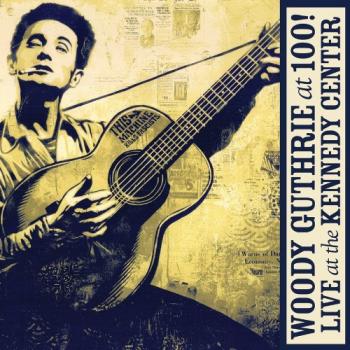
[1946]
Parole e musica di Woody Guthrie
Una canzone mai incisa dall’autore, riprese recentemente da Tom Morello negli album di tributo collettivo “Note Of Hope: A Celebration Of Woody Guthrie” (2011) e “Woody Guthrie At 100! Live At The Kennedy Center” (2013)
[Nell’immediato secondo dopoguerra] quella di Guthrie era una voce sempre più isolata che, dal deserto, invocava la ricostituzione della società americana e la distruzione del capitalismo. Nel luglio del 1946, scrisse così ad Asch:
“Questo è il sistema che vorrei vedere estinguersi. Ha ammazzato diversi membri della mia famiglia, ne ha gassati diversi e ne ha traumatizzati molti di più nell'ultima guerra mondiale e, in questa guerra mondiale appena passata, ne ha dispersi molti altri. Ha fatto fuggire famiglie di miei parenti e amici, centinaia di migliaia di persone, costringendole a vagare, senza una casa, peggio che se fossero... (Continues)
Parole e musica di Woody Guthrie
Una canzone mai incisa dall’autore, riprese recentemente da Tom Morello negli album di tributo collettivo “Note Of Hope: A Celebration Of Woody Guthrie” (2011) e “Woody Guthrie At 100! Live At The Kennedy Center” (2013)
[Nell’immediato secondo dopoguerra] quella di Guthrie era una voce sempre più isolata che, dal deserto, invocava la ricostituzione della società americana e la distruzione del capitalismo. Nel luglio del 1946, scrisse così ad Asch:
“Questo è il sistema che vorrei vedere estinguersi. Ha ammazzato diversi membri della mia famiglia, ne ha gassati diversi e ne ha traumatizzati molti di più nell'ultima guerra mondiale e, in questa guerra mondiale appena passata, ne ha dispersi molti altri. Ha fatto fuggire famiglie di miei parenti e amici, centinaia di migliaia di persone, costringendole a vagare, senza una casa, peggio che se fossero... (Continues)
Night is here again, baby,
(Continues)
(Continues)
Contributed by Bernart Bartleby 2017/9/6 - 15:49
Domenico Tiburzi

Buonasera, volevo sapere se esistono midi delle canzoni popolari maremmane...della pampanini ed altri autori d epoca. Per citarne : l ultimo buttero, il brigante tiburzi, la mia terra e quaklsiasi altra voi siate in grado di indicarmi!!! Grazie..Marzia
marziadegliesposti@yahoo.it 2017/9/5 - 22:06
זאָג ניט קײנמאָל
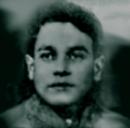
Slovak translation
Ripresa da punkgen.sk.
Reproduced from punkgen.sk.
"Napísal litviansky židovský partizán Hirsh Glick, v roku 1943, v tej dobe uväznený vo Vilniuskom ghette. Zúčastnil sa aj na ozbrojenom povstaní v ghette. Pieseň sa stala hymnou židovského odbojového hnutia. Neskôr bol prevezený do koncentračného tábora v Estónsku, odkial utiekol. Odvtedy ho nikto nevidel."
Reproduced from punkgen.sk.
"Napísal litviansky židovský partizán Hirsh Glick, v roku 1943, v tej dobe uväznený vo Vilniuskom ghette. Zúčastnil sa aj na ozbrojenom povstaní v ghette. Pieseň sa stala hymnou židovského odbojového hnutia. Neskôr bol prevezený do koncentračného tábora v Estónsku, odkial utiekol. Odvtedy ho nikto nevidel."
[NIKDY NEHOVOR]
(Continues)
(Continues)
Contributed by Riccardo Venturi 2017/9/5 - 12:18
זאָג ניט קײנמאָל
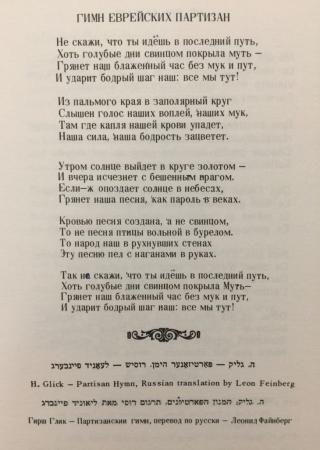
Russian version by Leon Feinberg
Sul sito di Eli Rabinowitz è presente soltanto l'immagine ripresa dalla brochure di Leizer Ran (1972), con indicazione del traduttore. La abbiamo qui riprodotta testualmente.
Eli Rabinowitz's website includes only an image taken from Leizer Ran's brochure, with the translator's name. We have reproduced it here as a text.
Sul sito di Eli Rabinowitz è presente soltanto l'immagine ripresa dalla brochure di Leizer Ran (1972), con indicazione del traduttore. La abbiamo qui riprodotta testualmente.
Eli Rabinowitz's website includes only an image taken from Leizer Ran's brochure, with the translator's name. We have reproduced it here as a text.
ГИМH ЕВРЕЙСКИХ ПАРТИЗАН [1]
(Continues)
(Continues)
Contributed by Riccardo Venturi 2017/9/5 - 11:49
Full Spectrum Dominance
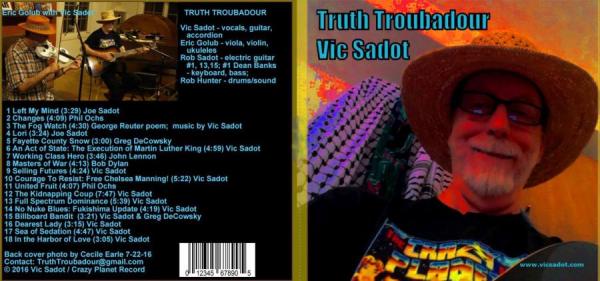
Copyright April 1, 2012 Victor René Sadot, BMI, Orbian Love Music
Written by Vic Sadot for the Bruce Gagnon April 10, 2012 speech for the Social Justice Committee of the Berkeley Fellowship of Unitarian Universalists.
"Full Spectrum Dominance" is a US military term refering to total military control over land, air, sea, space, and cyberspace, and is also called "hegemony".
This song, "Full Spectrum Dominance", was written by Vic Sadot for the 4-10-11 visit of Bruce Gagnon, founder of the Global Network Against Nuclear Power and Weapons in Space (See link to space4peace dot org at bottom below lyrics), to speak at Fellowship Hall in Berkeley, CA.
The recording was done Oct 12, 2012 at Robot Envy Studio in Berkeley with Vic Sadot on vocals and acoustic guitar, Rob Sadot on electric guitar, Eric Golub is on violin, and Sammy Fielding is sound engineer and owner of the studio.
The final... (Continues)
Written by Vic Sadot for the Bruce Gagnon April 10, 2012 speech for the Social Justice Committee of the Berkeley Fellowship of Unitarian Universalists.
"Full Spectrum Dominance" is a US military term refering to total military control over land, air, sea, space, and cyberspace, and is also called "hegemony".
This song, "Full Spectrum Dominance", was written by Vic Sadot for the 4-10-11 visit of Bruce Gagnon, founder of the Global Network Against Nuclear Power and Weapons in Space (See link to space4peace dot org at bottom below lyrics), to speak at Fellowship Hall in Berkeley, CA.
The recording was done Oct 12, 2012 at Robot Envy Studio in Berkeley with Vic Sadot on vocals and acoustic guitar, Rob Sadot on electric guitar, Eric Golub is on violin, and Sammy Fielding is sound engineer and owner of the studio.
The final... (Continues)
US corporate killers want more weapons in space!
(Continues)
(Continues)
Contributed by Vic Sadot 2017/9/5 - 10:29
An Act of State: The Execution of Martin Luther King
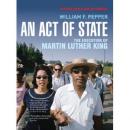
Thanks for publishing my song! The newer video of song with the newer 2013 studio sound track will be featured at the Grand Lake Theater in Oakland, CA on 9/11/17 when King family lawyer, William Pepper, will be the keynote speaker at the annual 9/11 Truth Film Festival.
The song bears the same title as Pepper's second of threee books on MLK. "An Act of State: The Execution of Martin Luther King" was recorded better in a professional studio in Berkeley, California in 2013, and a new video was made from that sound track, which features the amazing Eric Golub on viola.
An Act of State: The Execution of Martin Luther King (2013) (5:31) Truth Troubadour YouTube Channel [[|https://youtu.be/fcoZ3jMXrww]]
The titles of William Pepper's 3 three books about the murder of Martin Luther King, Jr. are: (1) Orders To Kill; (2) An Act of State: The Execution of Martin Luther King”; and (3) “The Plot... (Continues)
The song bears the same title as Pepper's second of threee books on MLK. "An Act of State: The Execution of Martin Luther King" was recorded better in a professional studio in Berkeley, California in 2013, and a new video was made from that sound track, which features the amazing Eric Golub on viola.
An Act of State: The Execution of Martin Luther King (2013) (5:31) Truth Troubadour YouTube Channel [[|https://youtu.be/fcoZ3jMXrww]]
The titles of William Pepper's 3 three books about the murder of Martin Luther King, Jr. are: (1) Orders To Kill; (2) An Act of State: The Execution of Martin Luther King”; and (3) “The Plot... (Continues)
The only change in the lyrics is here in verse 6. Lately, I have been singing as "all the more":
(Continues)
(Continues)
Contributed by Vic Sadot 2017/9/5 - 10:08
זאָג ניט קײנמאָל

Anonymous German version
La versione (anonima) è presente come testo nel sito di Eli Rabinowitz, ma è infarcita di errori ortografici che qui sono stati corretti.
This anonymous version is included as a text in Eli Rabinowitz's website, but it is interlarded with misspellings which have been corriged here.
This anonymous version is included as a text in Eli Rabinowitz's website, but it is interlarded with misspellings which have been corriged here.
SAG NICHT KEINMAL
(Continues)
(Continues)
Contributed by Riccardo Venturi 2017/9/4 - 20:47
זאָג ניט קײנמאָל
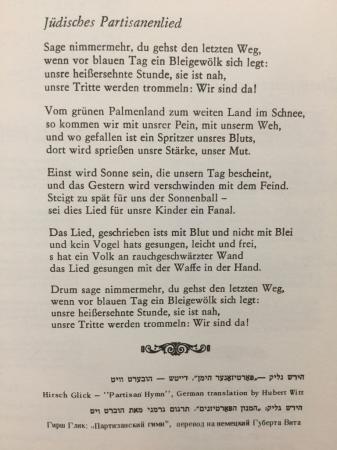
German version by Hubert Witt
Sul sito di Eli Rabinowitz è presente soltanto l'immagine ripresa dalla brochure di Leizer Ran (1972), con indicazione del traduttore. La abbiamo qui riprodotta testualmente.
Eli Rabinowitz's website includes only an image taken from Leizer Ran's brochure, with the translator's name. We have reproduced it here as a text.
Sul sito di Eli Rabinowitz è presente soltanto l'immagine ripresa dalla brochure di Leizer Ran (1972), con indicazione del traduttore. La abbiamo qui riprodotta testualmente.
Eli Rabinowitz's website includes only an image taken from Leizer Ran's brochure, with the translator's name. We have reproduced it here as a text.
JÜDISCHES PARTISANENLIED
(Continues)
(Continues)
Contributed by Riccardo Venturi 2017/9/4 - 20:27
זאָג ניט קײנמאָל
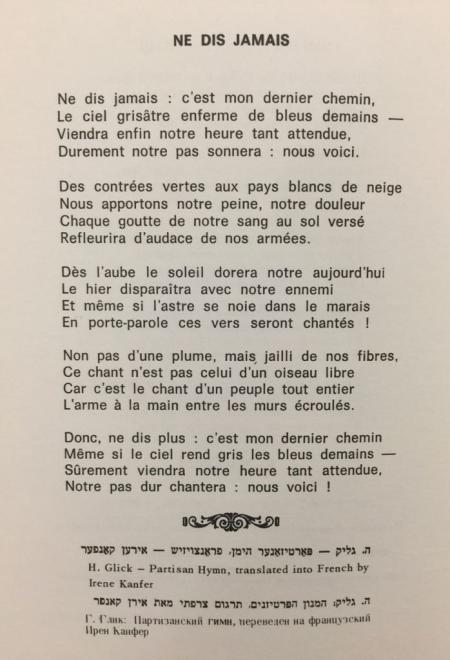
French version by Irene Kanfer
Version française d'Irene Kanfer
Sul sito di Eli Rabinowitz è presente soltanto l'immagine ripresa dalla brochure di Leizer Ran (1972), con indicazione del traduttore. La abbiamo qui riprodotta testualmente.
Eli Rabinowitz's website includes only an image taken from Leizer Ran's brochure, with the translator's name. We have reproduced it here as a text.
Version française d'Irene Kanfer
Sul sito di Eli Rabinowitz è presente soltanto l'immagine ripresa dalla brochure di Leizer Ran (1972), con indicazione del traduttore. La abbiamo qui riprodotta testualmente.
Eli Rabinowitz's website includes only an image taken from Leizer Ran's brochure, with the translator's name. We have reproduced it here as a text.
NE DIS JAMAIS
(Continues)
(Continues)
Contributed by Riccardo Venturi 2017/9/4 - 19:59
זאָג ניט קײנמאָל

Greek translation by Riccardo Venturi
Μετέφρασε στα Ελληνικά ο Ρικάρντος Βεντούρης
04-09-2017 19:31
Μετέφρασε στα Ελληνικά ο Ρικάρντος Βεντούρης
04-09-2017 19:31
Traduzione letterale non cantabile, preparata appositamente per questo sito.
The following word-for-word translation cannot be sung. It has been specially made for this site.
The following word-for-word translation cannot be sung. It has been specially made for this site.
ΥΜΝΟΣ ΤΩΝ ΕΒΡΑΙΩΝ ΑΝΤΑΡΤΩΝ
(Continues)
(Continues)
2017/9/4 - 19:33
The Last Refugee

io credo che non si parli nè di pallottole decise nè di parvenze, ma di unghie finte (conchiglie dure) che picchettano sugli iphones, e Rhapsody sia inteso come Rapimento, Euforia, Emozione ..
valter 2017/9/4 - 19:27
זאָג ניט קײנמאָל
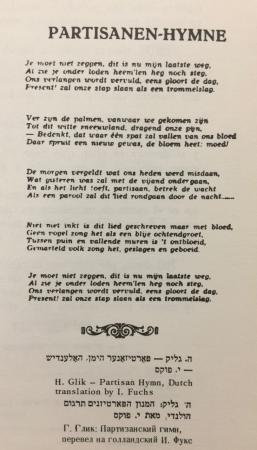
Dutch version by I. Fuchs
Sul sito di Eli Rabinowitz è presente soltanto l'immagine ripresa dalla brochure di Leizer Ran (1972), con indicazione del traduttore. La abbiamo qui riprodotta testualmente.
Eli Rabinowitz's website includes only an image taken from Leizer Ran's brochure, with the translator's name. We have reproduced it here as a text.
Sul sito di Eli Rabinowitz è presente soltanto l'immagine ripresa dalla brochure di Leizer Ran (1972), con indicazione del traduttore. La abbiamo qui riprodotta testualmente.
Eli Rabinowitz's website includes only an image taken from Leizer Ran's brochure, with the translator's name. We have reproduced it here as a text.
PARTISANEN-HYMNE
(Continues)
(Continues)
Contributed by Riccardo Venturi 2017/9/4 - 11:02
Rwanda
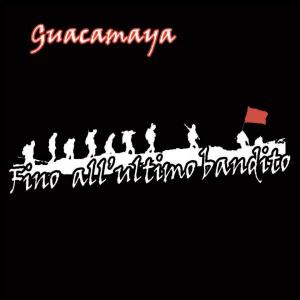
Ancora sangue sulla terra del Rwanda
(Continues)
(Continues)
Contributed by dq82 2017/9/4 - 10:37
Song Itineraries:
1994: The Rwanda Genocide
זאָג ניט קײנמאָל

A word-for-word translation into Afrikaans
Ripresa dal sito di Eli Rabinowitz (sezione "Words"). Il traduttore non è indicato, ma poiché Eli Rabinowitz è nato in Sudafrica, è probabile che il traduttore sia egli stesso.
Reproduced from Eli Rabinowitz's website (section: "Words"). The translator's name is not stated, but it could be E.R. himself as he is a native from South Africa.
Reproduced from Eli Rabinowitz's website (section: "Words"). The translator's name is not stated, but it could be E.R. himself as he is a native from South Africa.
Moet nooit sê dit is die einde van die pad nie.
(Continues)
(Continues)
Contributed by Riccardo Venturi 2017/9/4 - 10:24
זאָג ניט קײנמאָל
German Adaptation ("Nachdichtung") by Heinz Kahlau
Ripresa da anarchismus.at, sito anarchico austriaco: "Der berühmteste jüdische PartisanInnenensong, geschrieben 1943 von Hirsh Glick im Ghetto von Vilnius."
Reproduced from anarchismus.at, an Austrian anarchist website: "Der berühmteste jüdische PartisanInnenensong, geschrieben 1943 von Hirsh Glick im Ghetto von Vilnius."
Reproduced from anarchismus.at, an Austrian anarchist website: "Der berühmteste jüdische PartisanInnenensong, geschrieben 1943 von Hirsh Glick im Ghetto von Vilnius."
PARTISANENLIED / SAG NIE
(Continues)
(Continues)
Contributed by Riccardo Venturi 2017/9/4 - 10:20
זאָג ניט קײנמאָל

A version into the dialect of Livorno by Riccardo Venturi
Preparata appositamente per questo sito.
Specially prepared for this website.
Specially prepared for this website.
CANTO DE' PARTIGIANI EBREI
(Continues)
(Continues)
2017/9/4 - 01:58
×
![]()

